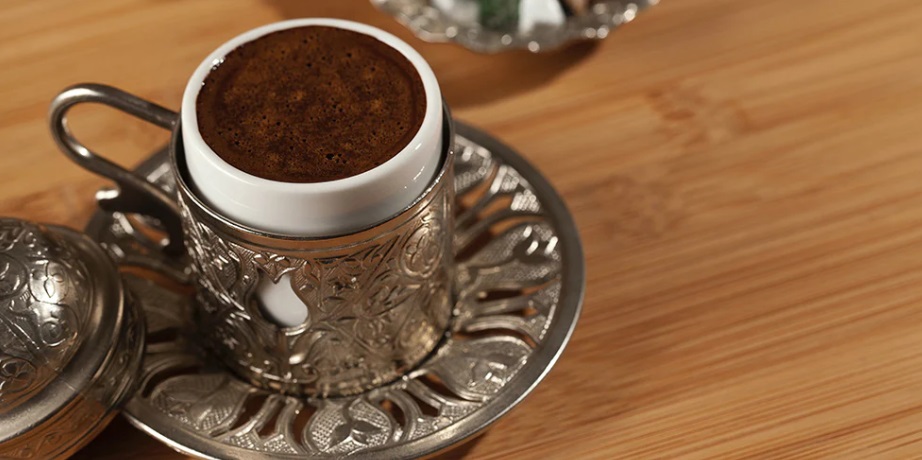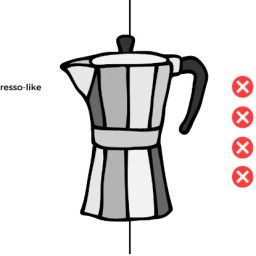
Turkish coffee isn’t just a drink; it’s a unique brewing tradition steeped in history. Unlike other coffee-making methods, Turkish coffee is brewed in a special pot called a cezve or ibrik. This method involves finely ground coffee beans that aren’t filtered out, creating a distinctive and bold flavor profile.
What sets Turkish coffee apart is its intense brewing process and the cultural rituals that accompany its preparation and consumption. Whether you’re a coffee aficionado or a curious newcomer, diving into the world of Turkish coffee is an intriguing journey through taste and tradition.
Key Takeaways
- Distinct Brewing Method: Learn the unique steps in brewing Turkish coffee that distinguish it from other coffee types.
- Cultural Experience: Understand how Turkish coffee plays a significant role in various cultural and social contexts.
- Choosing the Right Equipment: Discover the importance of selecting the correct cezve and grinder for the perfect Turkish coffee.
- Health Insights: Gain insights into the health aspects and nutritional content of Turkish coffee.
- Making It Perfect: Tips on achieving the quintessential Turkish coffee foam and flavor.
The Cultural Significance of Turkish Coffee
Turkish coffee is more than just a morning or after-meal beverage; it’s a cultural emblem, reflecting a rich tradition that has been passed down through generations. Its preparation and serving are ritualistic, often symbolizing hospitality and respect. In various social settings, from casual meetings to significant ceremonies, Turkish coffee serves as a medium of communication and connection.
Notably, it’s also used in the traditional practice of fortune-telling, where the coffee grounds left in the cup are interpreted to predict the future.
Different Types of Turkish Coffee Pots and Materials
When it comes to brewing Turkish coffee, the pot you choose, traditionally known as a cezve or ibrik, plays a pivotal role. These pots are usually made from materials like copper, brass, or stainless steel, each offering its own benefits. Copper pots, for instance, are excellent conductors of heat, allowing for a uniform brewing temperature, which is crucial for the perfect cup of Turkish coffee.
Brass options are durable and offer a mid-point in terms of heat conductivity, while stainless steel is a modern, easy-to-maintain alternative. The size of the pot is also vital. Since Turkish coffee is served in small quantities, choosing a pot that matches your serving needs will ensure the coffee is brewed to its full flavor and strength.
Importance of a Proper Turkish Coffee Grinder
A grinder is another essential tool in your Turkish coffee arsenal. The grind for Turkish coffee is finer than what you’d use for espresso, resembling a powdery consistency. This ultra-fine grind is crucial because it allows the coffee to fully immerse and infuse in the water, creating the signature rich and intense flavor.
While there are electric grinders that can produce this fine grind, a traditional manual Turkish coffee grinder adds an element of authenticity to the process. Plus, it gives you control over the grind size, ensuring you get the perfect consistency every time. Remember, the right grinder will make all the difference in your Turkish coffee experience, from the texture to the taste.
The Brewing Process
Brewing Turkish coffee is an art that combines technique with tradition, resulting in a rich and flavorful cup. Here’s a step-by-step guide to help you master this process:
- Measure Your Ingredients: Start with cold water and measure it using the Turkish coffee cup you’ll serve the coffee in. For each cup, use one heaping tablespoon of finely ground Turkish coffee.
- Mixing: Combine water, coffee grounds, and sugar (if desired) in your cezve. Stir well until all ingredients are fully integrated.
- Heat Gradually: Place the cezve on low heat. Patience is key here; the slow heating process is what allows the coffee to fully infuse and develop its signature foam.
- Watch for the Foam: As the coffee heats, a dark foam will begin to form. This is your cue to reduce the heat and let the coffee simmer gently.
- Serving: Once the foam has risen, pour the coffee into cups, ensuring that the delightful foam tops each serving.
Tips for Achieving the Perfect Foam
Achieving the perfect foam in Turkish coffee is a hallmark of a well-brewed cup. Here are some tips to help you get it just right:
- Stirring is Key: Before heating, give your coffee and water mixture a good stir. This initial mix is crucial for even heat distribution and foam formation.
- Control the Heat: Keep the heat low and slow. High heat will not only prevent foam from forming but can also burn the coffee.
- Timing is Everything: Once the foam starts rising, remove the cezve from the heat briefly. Let it settle, then return it to the heat. This helps the foam develop without spilling over.
- Pour Carefully: When pouring the coffee into cups, do it slowly to preserve the foam, ensuring that each cup gets its fair share of this frothy delight.
Variations and Serving Suggestions
Turkish coffee can be customized and served in various ways, catering to individual tastes and traditions. Here’s how you can explore different methods and suggestions for serving:
- Sugar Levels: Adjust the sweetness by adding sugar during the brewing process. The terms “sade” (no sugar), “az şekerli” (little sugar), “orta” (medium sugar), and “şekerli” (sweet) can guide you on the amount of sugar to add.
- With or Without an Ibrik: While traditionally brewed in an ibrik, you can also use a small saucepan if an ibrik isn’t available. The key is to maintain the brewing method to achieve the authentic taste.
- Serving Style: Serve Turkish coffee in small, espresso-sized cups. It’s traditionally accompanied by water to cleanse the palate and sometimes a sweet treat like Turkish delight.
Health and Nutritional Aspects of Turkish Coffee
Turkish coffee is not just a flavorful brew; it also has various health implications and nutritional aspects to consider:
Calorie Content: Regular Turkish coffee is relatively low in calories, but adding sugar can increase its calorie count.
Caffeine: Like other coffee types, Turkish coffee contains caffeine, which can have stimulating effects. The fine grind and brewing method may result in a slightly higher caffeine concentration compared to other brewing methods.
Antioxidants: Coffee is known for its antioxidants, and Turkish coffee is no exception. These compounds can help combat oxidative stress in the body.
FAQs
How finely should the coffee be ground for Turkish coffee?
The coffee should be ground to a fine powder, finer than what you’d use for espresso. This fine grind is crucial for the distinctive texture and flavor of Turkish coffee.
Can I make Turkish coffee without a cezve?
Yes, you can use a small saucepan as an alternative, though a cezve is recommended for authenticity and the best flavor.
How do I know when the coffee is ready?
Watch for the coffee to foam up and then settle. This usually happens just before boiling, indicating it’s ready to be served.
Is it normal for Turkish coffee to have grounds at the bottom of the cup?
Yes, it’s perfectly normal and part of the traditional experience. The grounds settle at the bottom, so avoid the last sip if you don’t want to taste them.
Final Thoughts
Turkish coffee offers a unique and immersive experience, combining rich flavors, cultural traditions, and a distinctive brewing method. By selecting the right equipment, mastering the brewing process, and serving it authentically, you can enjoy Turkish coffee in its full glory. Remember, it’s more than just a beverage; it’s a journey through centuries of tradition, inviting you to savor each sip and embrace the rituals that make it so special.









